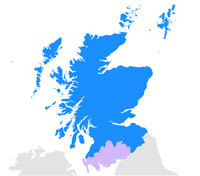"From: House of Commons Committee of Public Accounts Penalty charge notices in healthcare One Hundred and Fifteenth Report of Session 2017–19. These points are revealing: The Department argues that its approach is justifiable because it spends 31 pence per £1 collected managing the process. However, it has not calculated costs to the wider health system, where patients—for fear of being fined—do not seek the treatment they need and end up in hospital. Last year the PCN process generated a net yield of £25 million for the NHS, a pitiful sum compared to the annual cost of prescriptions which is around £9 billion. We believe that this kind of threatening approach is unhelpful, and we are concerned that it could have a negative impact on people who are legitimately entitled to exemption. The British Dental Association tells us that last year it saw a 23% fall in the number of people on low incomes seeking treatment and is concerned that the threat of fines may have discouraged people from going to the dentist. Failure to seek treatment when needed is only likely to push up longer-term costs to the NHS."
https://publications.parliament.uk/pa/cm201719/cmselect/cmpubacc/2038/2038.pdf
http://reidfoundation.org/wp-content/uploads/2012/12/The-Case-for-Universalism.pdf
https://talkingupscotlandtwo.com

